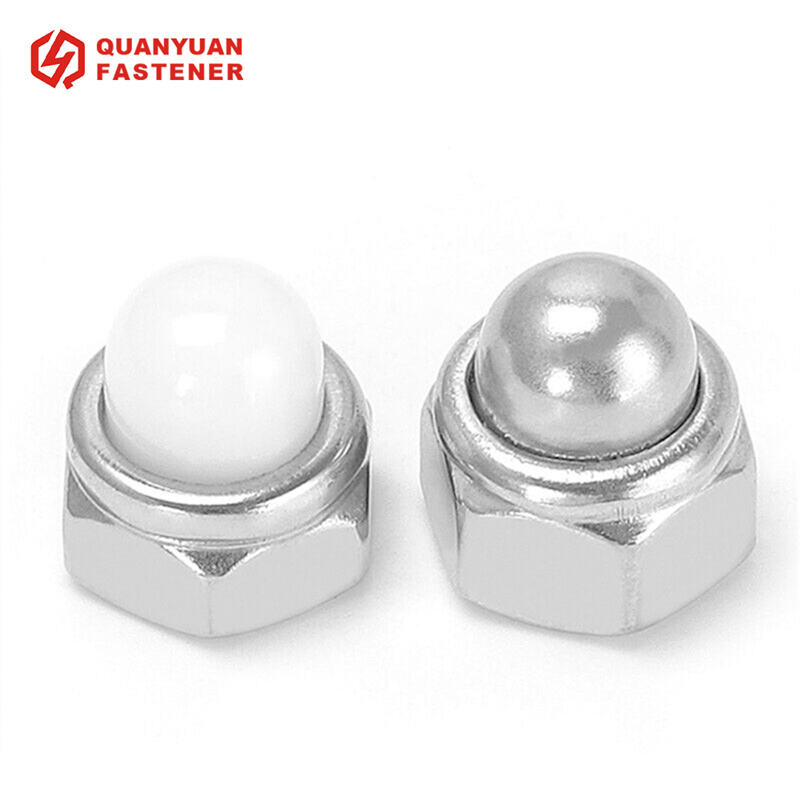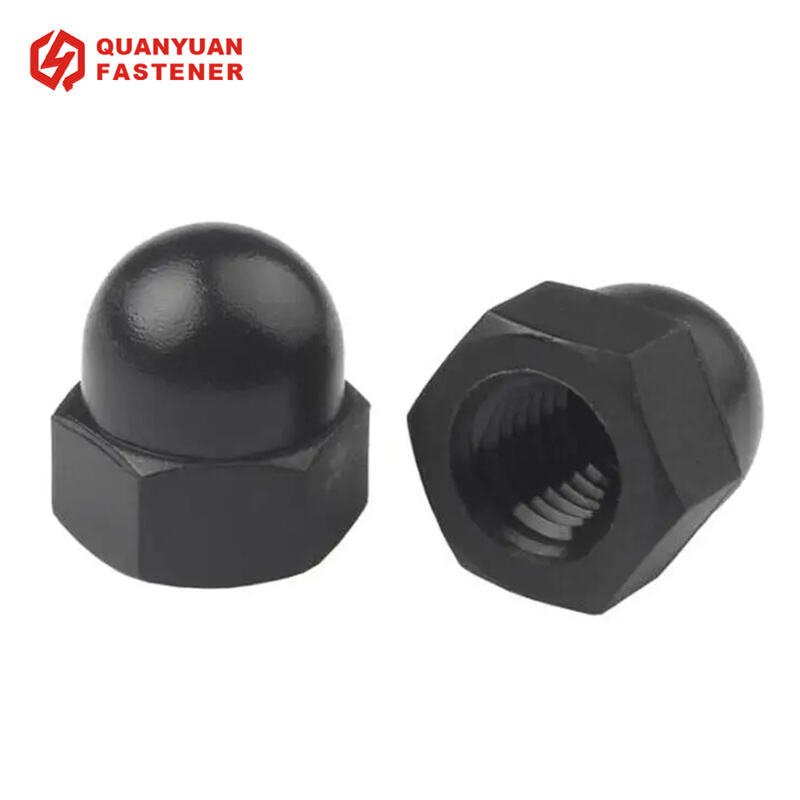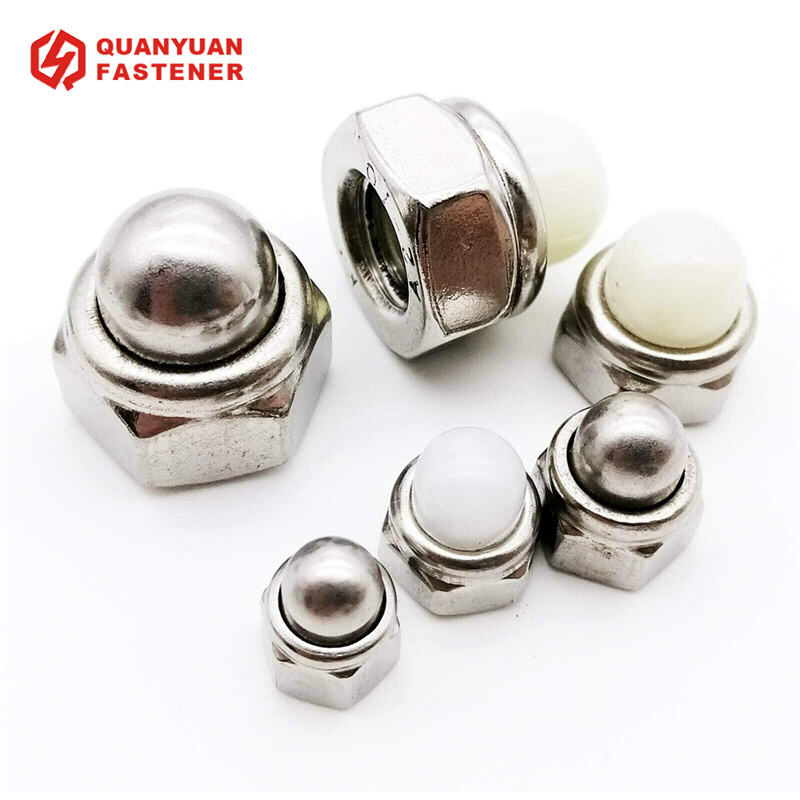Among these are dome nuts, or acorn nutFastening some objects such as bolts and axles require it securely fixed. They come in many shapes, sizes and materials, making them as thin or thick for specific applications where safety is a top priority. We will explore the world of dome nuts and its in-depth analysis on types, usage areas, correct tighten methods for your benefit when doing DIY work at homes or where ever it is needed to be done how stainless steel fits into this vs brass variant as well creative ways you could use these iconic bolts juts a reminder that they started from humble beginnings way back then up till now.
An In Approach to the Different Types of Dome Nuts And How They Are Used
There are several types of dome nuts such as Cap Nuts, Coupling Nut and Thin nut. UseThese nuts close the top end of threaded rod so that they cannot be damaged or cause harm. In contrast, coupling nuts are long-like solutions that link two threaded rods or any other kind of bolt. Thin Nuts: Another category of nuts is thin nuts that are usually thinner in fitting than standard ones and screws onto a bolt like other same-sized types.
One of the important usages for dome nuts are in industries such as automotive, construction, marine and manufacturing. The automotive industry uses them extensively to affix parts such as wheel hubs, axels and suspension systems. In the construction sector, dome nuts are being used to attach steel column legs on concrete floors. They also secure boat fittings and rigging hardware in the marine industry. Dome nuts are also prevalent in manufacturing means where they use to fix the machinery parts and equipment during fastening.
Because dome nuts need to be tightened properly for this reason, it's important createdBy Jerygan Over-tightening can stretch and ruin the nut, or strip the threads; while under-tighten may allow it to vibrate loose and fall off. There is no doubt that a torque wrench works great when it comes to final tightening, but most people use handheld length.
Dome nuts will also need to be torqued correctly - that is the amount of force or load it required for you tighten your nut effectively. The maximum torque specifications will depend on factors such as the diameter and thread pitch of the bolt, along with what material both nuts are made out of. These numbers would generally be available in the manufacturer's spec sheet or a torque chart.

There are many materials exist being used for dome nuts such as stainless steel and brass. Due to its strength,resistance to corrosion, and long performance history stainless steel is perfect for those applications where sheer durability comes above all else. Meanwhile, brass is prized for its attractive appearance (the copper content gives it a golden hue) in addition to high conductivity and corrosion resistance, making it effective for use where looks or electrical conductance are important.
Stainless steel dome nuts is the top choice since they have a high strength and durability which allows them to work well with even the highest pressure, temperature conditions as well do not get corroded that easy when exposed to moisture. Alternatively, brass dome nuts are somewhat more aesthetic in appearance and therefore becomes a popular choice for projects where aesthetics is an important factor to consider. While they might not be as durable like stainless steel, but are certainly ill-suited for high-pressure scenarios.

While dome nuts have their place in industrial and commercial use, they are versatile enough to be used for do-it-yourself projects such as furniture making lighting fixtures or art pieces. An example being using dome nuts in DIY projects where the end result is an impressive lamp shade made by stacking up Brass or Stainless-Steel Dome Nuts around a lighting Socket creating one of a kind modern indoor light features. Another creative application is producing unique shelf brackets by means of attaching dome nuts to wooden or metal supports, allowing for the customization of floating shelving units that have a very modern finish.

Once upon a time made with materials like brass, copper or iron dome nuts are now more often produced from materials such as stainless steel, aluminum and titanium due to new technology allowing our supplies of better quality product. And what previously used to be regarded as a simple machinary and construction only dome, have now been integrated in many of todays applications. From use in the automotive industries to playground safety rails, you will find these dome nuts being used almost everywhere.
To conclude, dome nuts are an essential part of projects in need for a strong and durable fastening system. With the panoply of types, materials and uses they are a requisite in for an enormous array of industrial as well as domestic purposes. Dome Nuts The proper assembly of dome nuts is required for safety, and the choice of material can also be a significant contrast between failure or success on any project.
dome nuts offers customized solutions to meet the needs of different industries The ability to produce bolts that are made of unique materials coatings or designs allows manufacturers to meet the needs of specific markets and establish strong relationships with their customers
Quanyuan Fasteners uses the latest production dome nuts, processes and adheres to national standards and industry specifications. They screen every raw material to ensure they meet requirements for durability, wear resistance, and corrosion resistance.
Quanyuan fasteners are capable of large-scale production and rapid delivery Bolt manufacturers can create high-quality bolts efficiently due to advancements in manufacturing technologies such as automated production lines and dome nuts
Quanyuan fasteners don't just provide high-quality items but also focus on after-sales dome nuts and technical support We have a complete after-sales service system to provide customers with timely and professional technical support and solutions If there's a problem with the product we will respond in a timely manner and provide efficient solutions